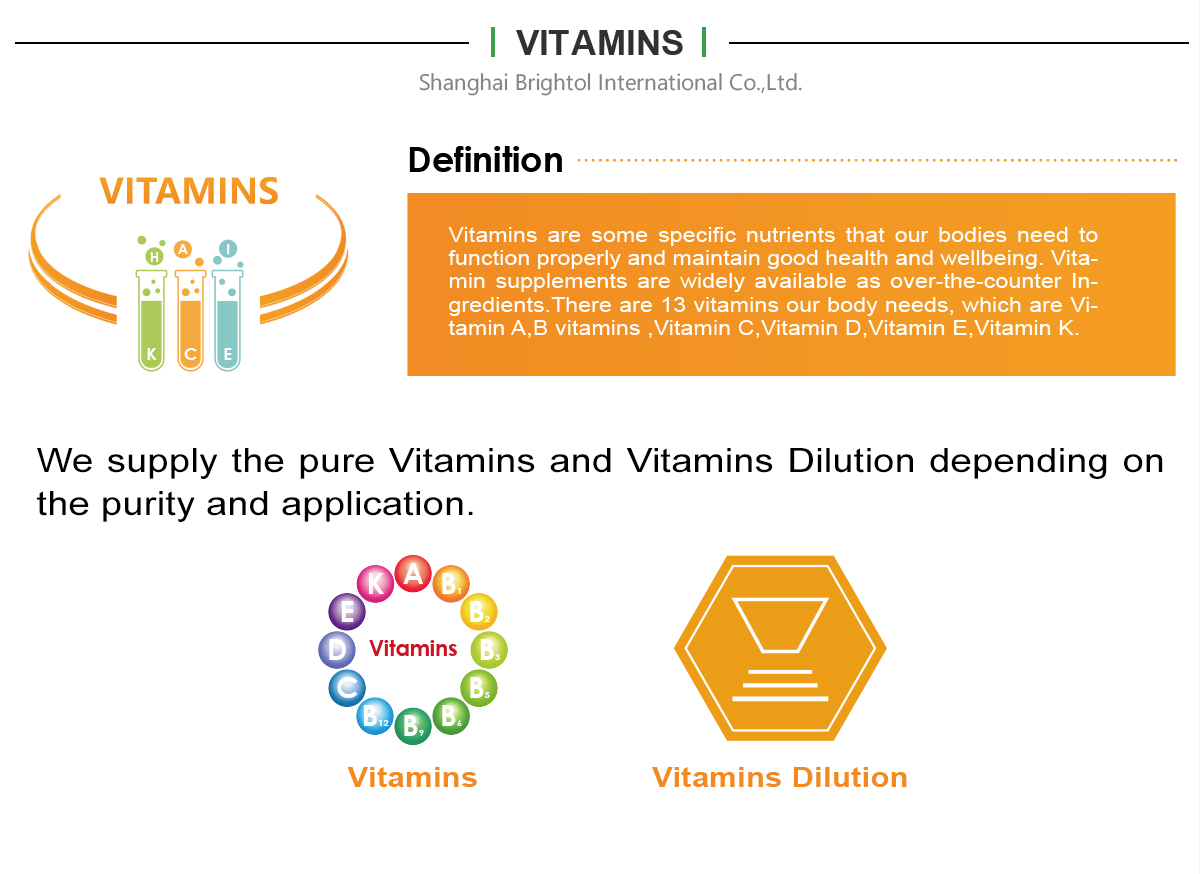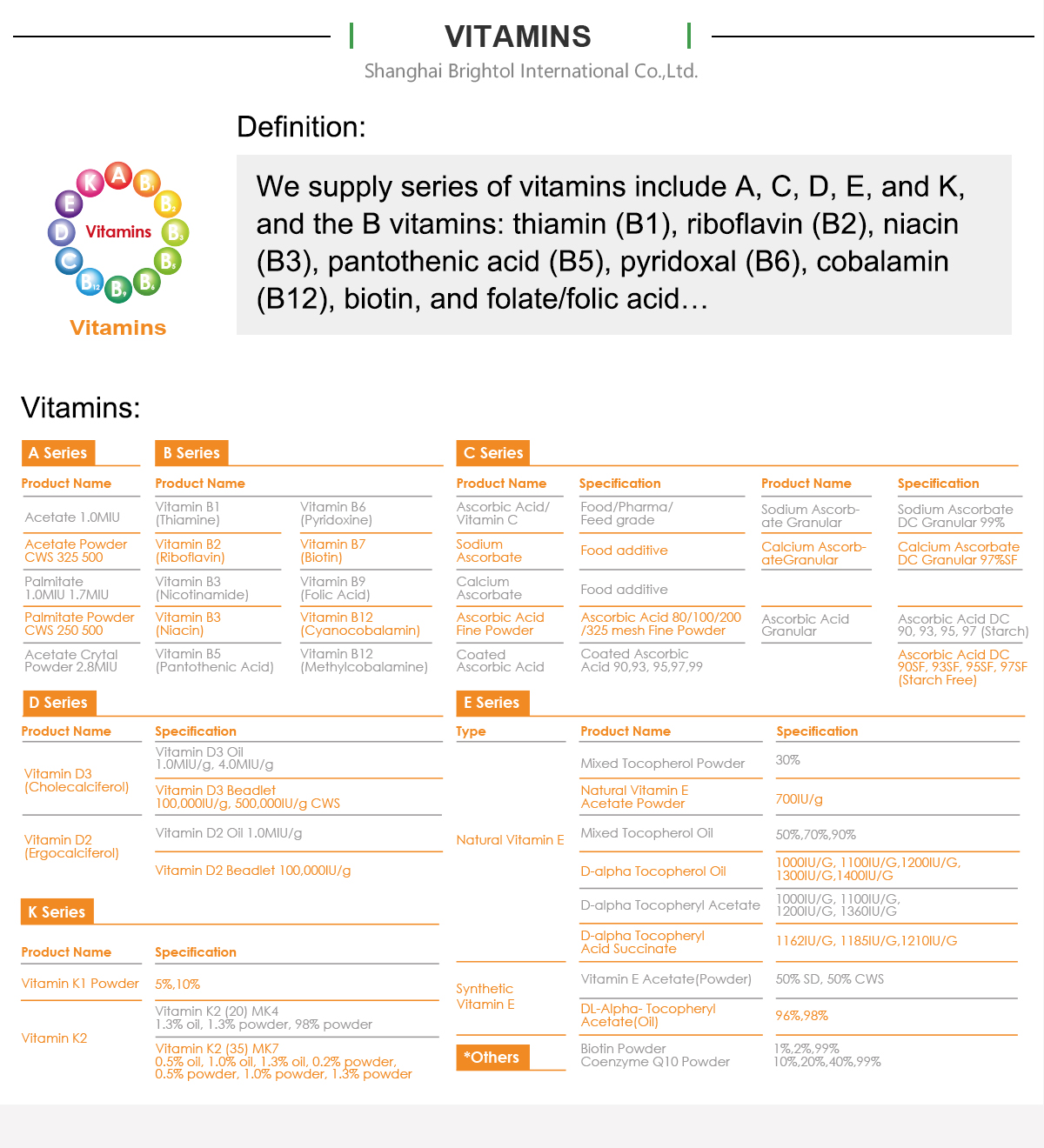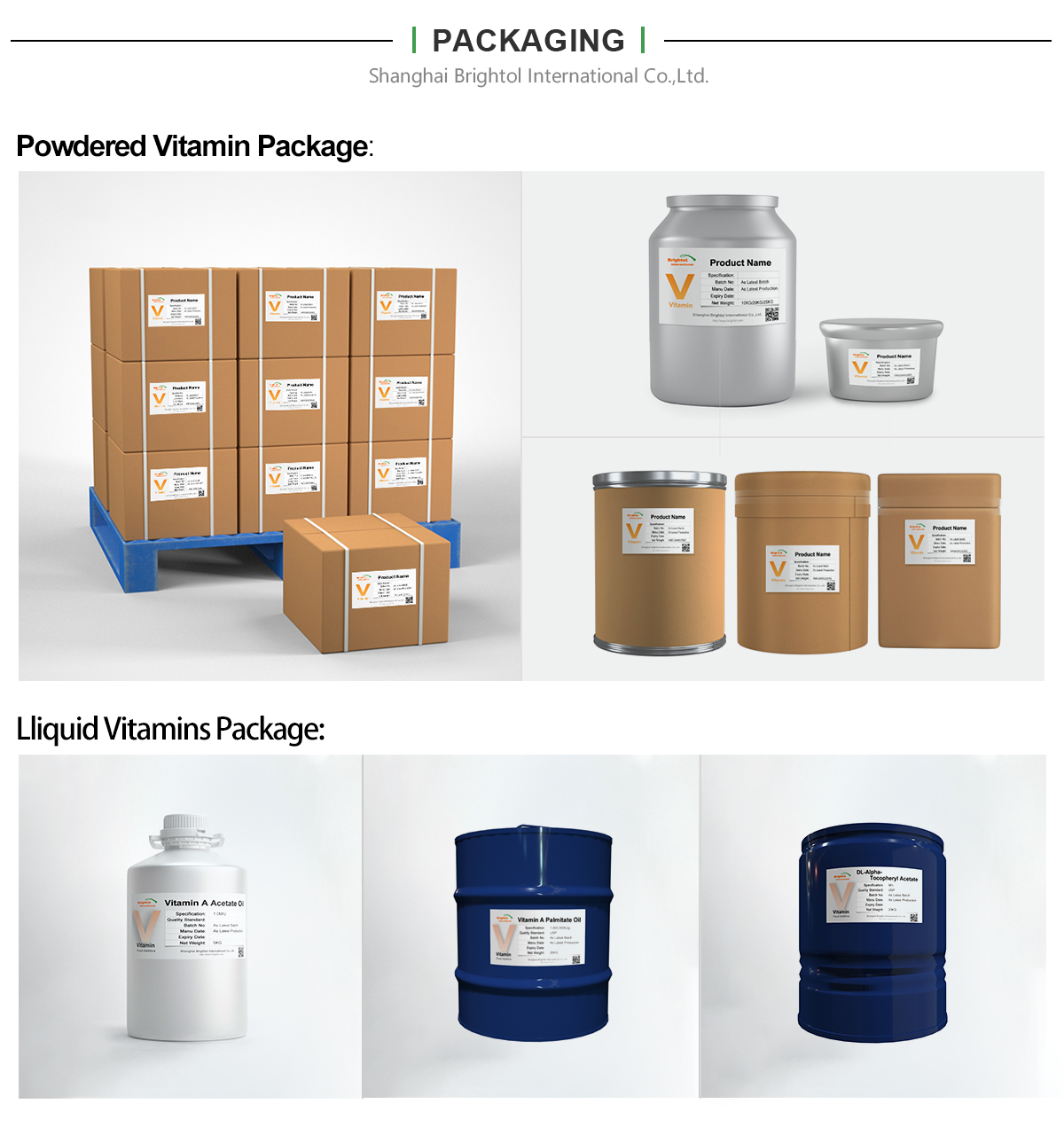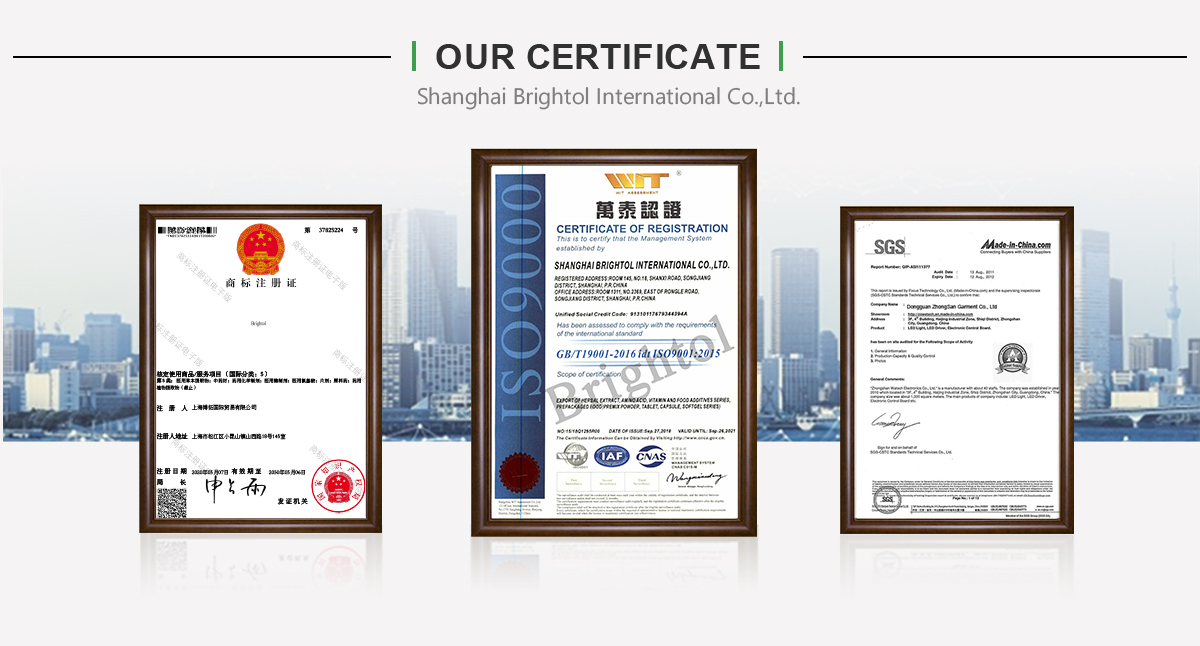

Product Name: Thiamine Mononitrate
Synonyms: mnitrate;nitrate(salt);thiaminenitrate(salt);vitamin Bl mononitrate;D03277;Thiamine nitrate (jp15);Vitanon;Vitanon (tn)
Molecular Formula: C12H17N5O4S
Molecular Weight: 327.36
CAS No.: 532-43-4
EINECS: 208-537-4
Introduction:
Vitamin B1 (Thiamine mononitrate) helps fight against various health problems, including heart damage. Vitamin B1 is one of the eight water-soluble B vitamins. Vitamin B1 (Thiamine mononitrate), which a vitamin found in food and used as a dietary supplement. As a supplement, it is used to treat and prevent thiamine deficiency and disorders that result from it, including beriberi, Korsakoff’s syndrome, and Korsakoff’s psychosis. Other uses include maple syrup urine disease and Leigh’s disease. It is taken by mouth or by injection. It is also widely used in feed industry as a supplement.
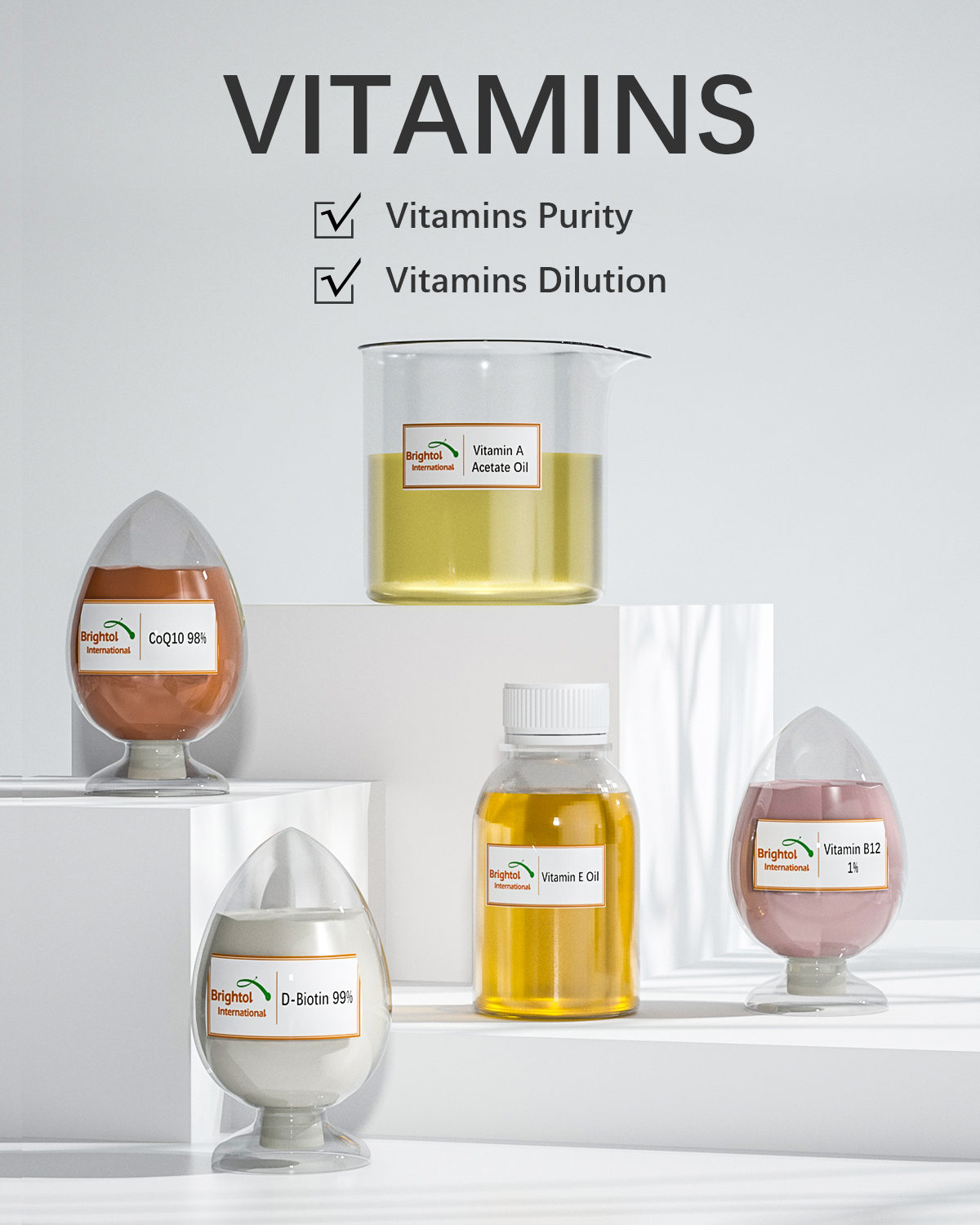
 Product Name: Thiamine Mononitrate
Product Name: Thiamine Mononitrate
Synonyms: mnitrate;nitrate(salt);thiaminenitrate(salt);vitamin Bl mononitrate;D03277;Thiamine nitrate (jp15);Vitanon;Vitanon (tn)
Molecular Formula: C12H17N5O4S
Molecular Weight: 327.36
CAS No.: 532-43-4
EINECS: 208-537-4
Introduction:
Vitamin B1 (Thiamine mononitrate) helps fight against various health problems, including heart damage. Vitamin B1 is one of the eight water-soluble B vitamins. Vitamin B1 (Thiamine mononitrate), which a vitamin found in food and used as a dietary supplement. As a supplement, it is used to treat and prevent thiamine deficiency and disorders that result from it, including beriberi, Korsakoff’s syndrome, and Korsakoff’s psychosis. Other uses include maple syrup urine disease and Leigh’s disease. It is taken by mouth or by injection. It is also widely used in feed industry as a supplement.
Benefit following people:
1. Alcohol or other substance abusers by accelerating metabolism
2. Those with poor nutritional dietary intake
3. Age greater than 55 years old
4. Women who are breastfeeding or pregnant
5. Recent surgery patients
6. Those with liver disease, overactive thyroid, or prolonged diarrhea
Function:
Thiamine is phosphorylated to phosphate in the cells, as a coenzyme participating in the Oxidative Decarboxylation of ketone acid and the transketolase of pentose phosphate pathway.
Especially useful for keeping the normal function of nerve, muscle and for the myocardium. Also maintain normal appetite, gastrointestinal peristalsis and the secretion of digestive juice.
